Table of Contents
- Despite the Ethics—Editing Is Crucial for Home Sales
- Why Ethics in Real Estate Photo Editing Matters
- Examples of Unethical Real Estate Photo Editing
- FAQ: Photo Editing Ethics
- How PhotoUp Supports Ethical Real Estate Editing
Real estate photo editing can highlight a property’s best features, making it more appealing to potential buyers. But how much editing is too much? Where to draw the line?
The ethics of real estate photo editing are a growing concern. While enhancing a property’s appearance is acceptable and even expected, misrepresenting it crosses an ethical (and sometimes legal) line.
In this post, we’ll explore where to draw the line, give real-world examples of overediting, and provide best practices for ethical photo enhancement.
Let’s get started by discussing why editing your real estate photography is crucial for home sales.
✅ Despite the Ethics—Editing Is Crucial for Home Sales


In the real estate world, first impressions can make or break a sale. In fact, 83% of homebuyers say photos are a crucial factor when deciding which properties to visit.
Since listing images are typically the first thing buyers see online, they need to instantly grab attention. Yet, it’s surprising that nearly half of homes priced over $1 million are showcased with low-quality photos—a missed opportunity that could cost sellers time and money.
But that’s where professional real estate photo editing makes a difference.
By enhancing clarity, color, and composition, editing transforms ordinary photos into powerful marketing tools. It draws attention to key features like natural light, scenic views, and architectural charm, making each space feel inviting and memorable.
Even better, listings with polished, high-quality images sell up to 32% faster and often command an increase of 47% per square foot.
In short, investing in real estate photo editing doesn’t just improve how a property looks—it boosts its market performance, helping agents and sellers stand out in a crowded marketplace.
With the importance of post-processing in mind, let’s take a look at why ethics in real estate photo editing matters.
🎯 Why Ethics in Real Estate Photo Editing Matters
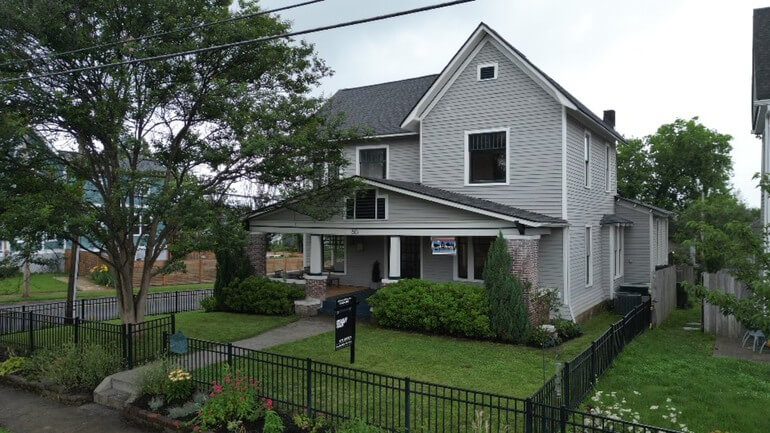

When buyers view a listing online, they trust that what they see is an accurate representation of the property.
Unethical real estate photo editing not only misleads potential buyers but it can also lead to damaged reputations, legal trouble, and lost deals.
Failing to maintain transparency can backfire in several ways:
- Wasted time for buyers who visit properties that don’t match the photos
- Increased buyer skepticism, damaging your brand
- Violation of MLS or state advertising laws
- And loss of trust from both buyers and sellers
To protect your credibility and build long-term trust, it’s essential to present listings honestly.
Ethical photo editing ensures you’re not just attracting interest—but attracting the right buyers for the right reasons.
Now, let’s move on to taking a closer look at some examples of unethical editing, also called photo manipulation.
🚫 Examples of Unethical Real Estate Photo Editing
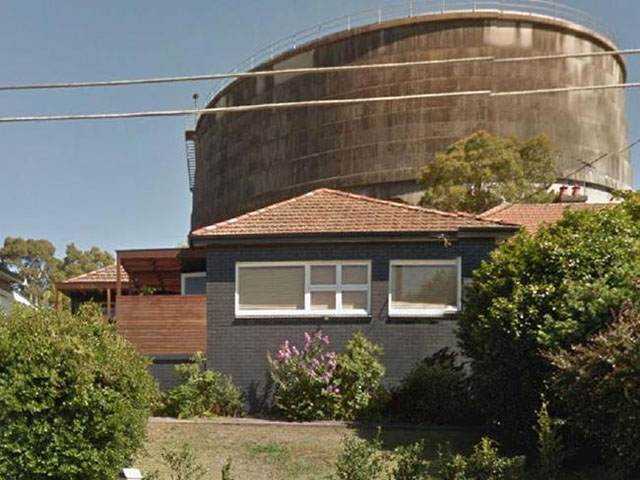

To give you a better understanding of what’s considered unethical editing, here are a few examples where editing goes too far and becomes misleading.
1. Digitally Removing Major Flaws
Removing cracks in walls, stains, mold, or damaged floors is unethical. Why? These are structural or condition-based issues that buyers must be aware of.
It’s okay to remove unwanted clutter, such as pet toys scattered around the living room floor or excessive personal belongings, like family portraits and decor. This can prevent buyers from seeing the home’s full potential.
2. Adding Nonexistent Features
Digitally inserting appliances, swimming pools, or even scenic views from windows (when they don’t exist) misrepresents the property.
However, you can use virtual staging to add digital furniture and decor as long as you disclose that your images are virtually staged or include before and after photos.
For more information, you can check out our blog post on is virtual staging legal? Learn how to disclose virtual staging.
3. Altering Room Size or Layout
Using wide-angle lenses is common in real estate photography to include as much of the space as possible in the frame.
However, stretching a room in post-processing to appear significantly larger is deceptive and should be avoided.
4. Removing Permanent Objects and Structures
Digitally removing utility poles, neighboring buildings, electrical grids, or busy streets nearby gives buyers a false impression of the environment.
Doing this can not only lead to buyer dissatisfaction and damaged reputation for your business, but also legal repercussions, which takes us to the next subject—the consequences of unethical editing.
The Real Estate Photography
Business Systems You Need
PhotoUp is the ultimate real estate photographer business platform.
⚠️ Consequences of Unethical Photo Editing

Here are the main consequences to consider when it comes to misleading buyers with over-editing and photo manipulation:
- Legal Repercussions: MLS boards and real estate commissions can penalize misleading advertising. Fines and suspensions are real risks
- Loss of Buyer Trust: Buyers who feel misled may walk away from deals or leave negative reviews, tarnishing the agent’s or photographer’s reputation
- Breach of Real Estate Laws: Many states have truth-in-advertising laws that apply to real estate listings. Misrepresenting a property—even unintentionally—could open the door to lawsuits
In short, crossing the line with photo editing doesn’t just risk a listing—it puts your professional integrity and livelihood on the line.
So, What’s Considered Ethical Photo Editing?
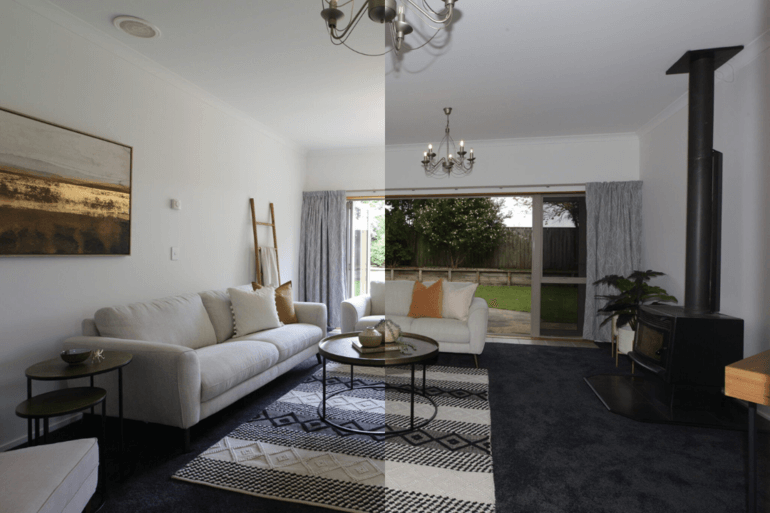
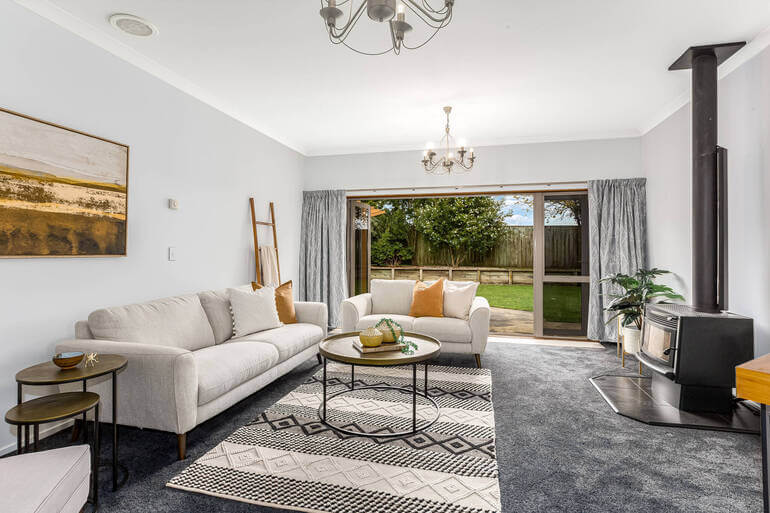
Ethical real estate photo editing enhances clarity and quality without distorting the reality of the property.
Acceptable edits include:
- Adjusting brightness, contrast, and white balance
- Correcting lens distortion and vertical alignment
- Removing temporary clutter (like trash bins, cords, cars in the driveway, etc)
- Replacing skies for aesthetic enhancement (not deception)
- Virtual staging that’s clearly labeled as digitally staged
- Window masking to showcase outside views
- Lawn enhancements to boost curb appeal
- Floor plans to show the measurements of the space
- And more!
As you can see, there are a lot of things you can do to boost the quality of your real estate photos and ensure they are well-lit and balanced.
The rule of thumb: If the edit changes a material aspect of the property or environment, it’s unethical.
FAQ: Photo Editing Ethics
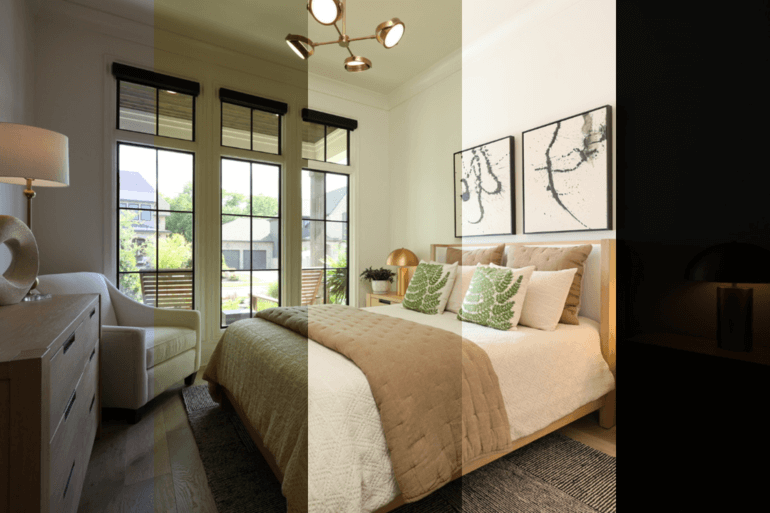

Can I remove a neighbor’s house from a photo?
No. Removing permanent surroundings is considered deceptive and unethical.
Is it okay to replace the grass with greener turf?
Yes, grass greening is acceptable to enhance curb appeal, as long as it reflects a realistic seasonal change and doesn’t mislead about the landscape condition.
Can I virtually stage an empty room?
Yes! Virtual staging is ethical if disclosed clearly to viewers and clients.
What happens if my listing gets flagged for misleading photos?
You may face penalties from your MLS, and it could result in legal action or lost business due to loss of credibility.
To recap, ethical photo editing isn’t just good practice—it’s essential for maintaining credibility and professionalism in the real estate industry.
By knowing where to draw the line, you can enhance your listings without misleading buyers.
With trusted partners like PhotoUp, real estate photographers and agents can confidently market listings while staying on the right side of ethics.
Have You Ever Thought To
Outsource Photo Editing?
Try it today with 10 free edits from three professional photo editors.
🤝 How PhotoUp Supports Ethical Real Estate Editing
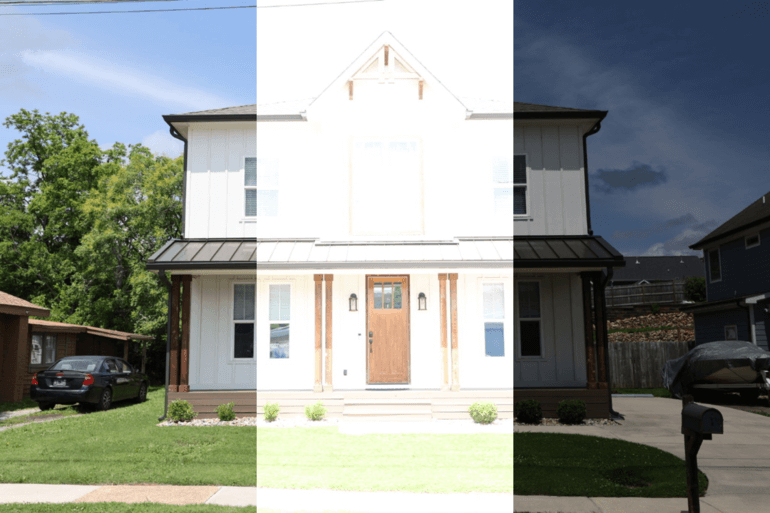

At PhotoUp, ethical photo editing is a core value. Our professional editors are trained to enhance property photos responsibly, ensuring edits are beautiful yet honest.
With our expert real estate photo editing service, you get:
- Ethically enhanced images starting at just $1.50 per image (for on-demand editing). Subscriptions start at 1 credit/$1 per image
- Clear virtual staging disclosures
- Transparent editing practices that follow MLS guidelines
- A user-friendly platform to request, review, and approve edits
- Access to Dedicated Editing with an editor or team of editors 100% dedicated to your business. This ensures maximum image consistency and helps with brand awareness
- And local-based US support 26/7 via phone, chat, and email
PhotoUp helps real estate professionals stand out without crossing ethical lines—delivering high-quality photos that build trust, not false expectations.
PhotoUp Offers More Than Just Photo Editing
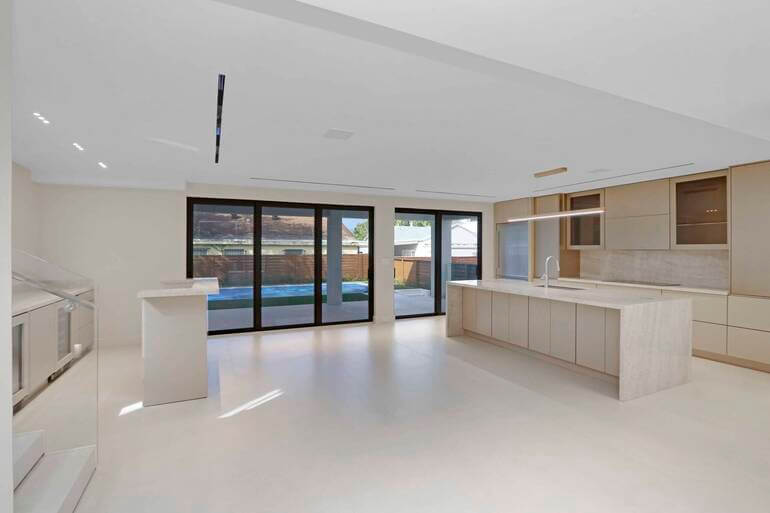

On top of that, PhotoUp does so much more than just photo editing! We are a complete real estate marketing partner and also offer other powerful services like:
- Virtual staging
- Virtual house tours
- Single property websites
- House portraits
- Property flyers
- And floor plans
As you can see, we have everything you need to enhance and market real estate photography in one user-friendly software!
How to Get Started
Here’s a step-by-step guide to using PhotoUp:
Step 1. Sign up for a free PhotoUp account.
Step 2. Upload your photos to our easy-to-use software.
Step 3. Choose the level of editing that you need and provide instructions (optional).
Step 4. Wait for PhotoUp professional editors to edit and return the photos in less than 24 hours (48 hours for virtual staging).
Step 5. Download and start using your beautifully edited photos.
It’s as simple as 1-2-3!
Ethical editing builds trust, protects reputations, and ultimately leads to successful sales.
So, sign up for a free PhotoUp account today and let our professional editors ensure top-notch quality, ethical real estate photos.
For a limited time, you even get 10 free credits you can use however you please when you sign up for an account.
We hope this blog post helped you understand the ethics of real estate photo editing and where to draw the line. Before you go, you may also want to check out these related resources:






